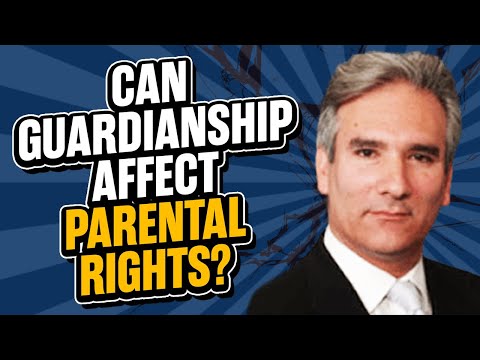
Welcome to this informative article on the distinction between legal guardianship and parental responsibility. It is important to note that while this article aims to provide valuable insights, it is always prudent to cross-reference with other reliable sources or consult legal advisors for specific cases or concerns.
In this article, we will explore the fundamental concepts of legal guardianship and parental responsibility in the context of US law. Understanding these concepts is vital as they shape the rights, obligations, and responsibilities of individuals involved in the care and upbringing of children.
Legal Guardianship:
Legal guardianship, often referred to simply as guardianship, is a legal relationship between a guardian and a child who is not their biological or adoptive child. Guardianship may arise in various situations, such as when a child’s parents are unable or unwilling to care for them adequately. This can occur due to factors such as parental incapacity, absence, or other circumstances that necessitate the appointment of a guardian.
📋 Content in this article
Legal guardianship is typically established through a court proceeding. The court evaluates the circumstances of the child and the potential guardian to determine if appointing a guardian is in the child’s best interest.
Once appointed, guardians assume legal authority and responsibility for the well-being and care of the child. This includes making decisions regarding the child’s education, healthcare, and general welfare.
It’s important to note that guardianship is not always permanent. The court can reassess the situation periodically and make adjustments or terminate the guardianship if it is no longer necessary or in the best interest of the child.
Parental Responsibility:
Parental responsibility, also known as parental rights and obligations, refers to the legal rights and responsibilities that parents have towards their biological or adopted children. These rights and responsibilities are inherent and typically granted automatically to parents.
Understanding the Distinction Between Guardian and Parent in US Law
The Distinction Between Legal Guardianship and Parental Responsibility: Explained
In the United States, the legal system recognizes a clear distinction between a guardian and a parent. While both roles involve caring for a child, it is important to understand the legal nuances and responsibilities attached to each. This article aims to clarify the key differences between legal guardianship and parental responsibility in US law.
Definition of Legal Guardianship:
Roles and Responsibilities of a Legal Guardian:
Definition of Parental Responsibility:
Roles and Responsibilities of a Parent:
Understanding the Legal Responsibilities of Parents or Guardians in the United States
Understanding the Legal Responsibilities of Parents or Guardians in the United States:
Parents and legal guardians in the United States have important legal responsibilities towards their children. These responsibilities can be broadly categorized into two main areas: parental responsibility and legal guardianship. While these two terms are often used interchangeably, it is crucial to understand their distinctions to ensure a comprehensive understanding of the legal landscape pertaining to child care and protection.
Distinguishing Parental Responsibility and Legal Guardianship:
Parental Responsibility:
Parental responsibility refers to the legal rights and obligations that parents have towards their biological or adopted children. It encompasses a wide range of duties and powers, including but not limited to:
Legal Guardianship:
Legal guardianship, on the other hand, refers to a legal relationship established by a court between a responsible adult (the guardian) and a child who is not their biological or adopted child. Legal guardianship grants the guardian certain rights and responsibilities similar to those of a parent. Some key points regarding legal guardianship include:
Title: The Distinction Between Legal Guardianship and Parental Responsibility: Explained
Introduction:
In the realm of US law, it is crucial to have a clear understanding of the concepts surrounding legal guardianship and parental responsibility. While these terms may appear to be synonymous at first glance, they possess distinct legal implications and obligations. This article aims to shed light on these differences, emphasizing the importance of staying current on this topic. However, it is essential to remind readers to verify and cross-reference the content provided here with applicable laws and seek professional legal advice if needed.
Legal Guardianship Defined:
Legal guardianship refers to a legal relationship between a responsible adult and a minor or incapacitated individual who is unable to care for themselves. It is typically established through a court process and grants the guardian specific rights and responsibilities concerning the ward. Guardianship can be temporary or permanent, depending on the circumstances and the court’s decision.
Key Elements of Legal Guardianship:
1. Decision-making authority: A legal guardian has the authority to make important decisions on behalf of the ward, including medical, educational, and financial matters.
2. Duty of care: Guardians have a duty to provide for the ward’s physical, emotional, and educational needs, ensuring their well-being and safety.
3. Legal rights: Guardians are entitled to exercise certain legal rights, such as access to the ward’s records and the ability to consent or withhold consent for specific activities involving the ward.
Parental Responsibility Defined:
Parental responsibility refers to the legal rights, duties, powers, and responsibilities that parents hold in relation to their children. It encompasses the legal obligation to care for, protect, and provide for a child’s well-being throughout their upbringing. Parental responsibility is typically automatic for biological or adoptive parents, though it can also be granted through court orders or agreements.
Key Elements of Parental Responsibility:
1.
